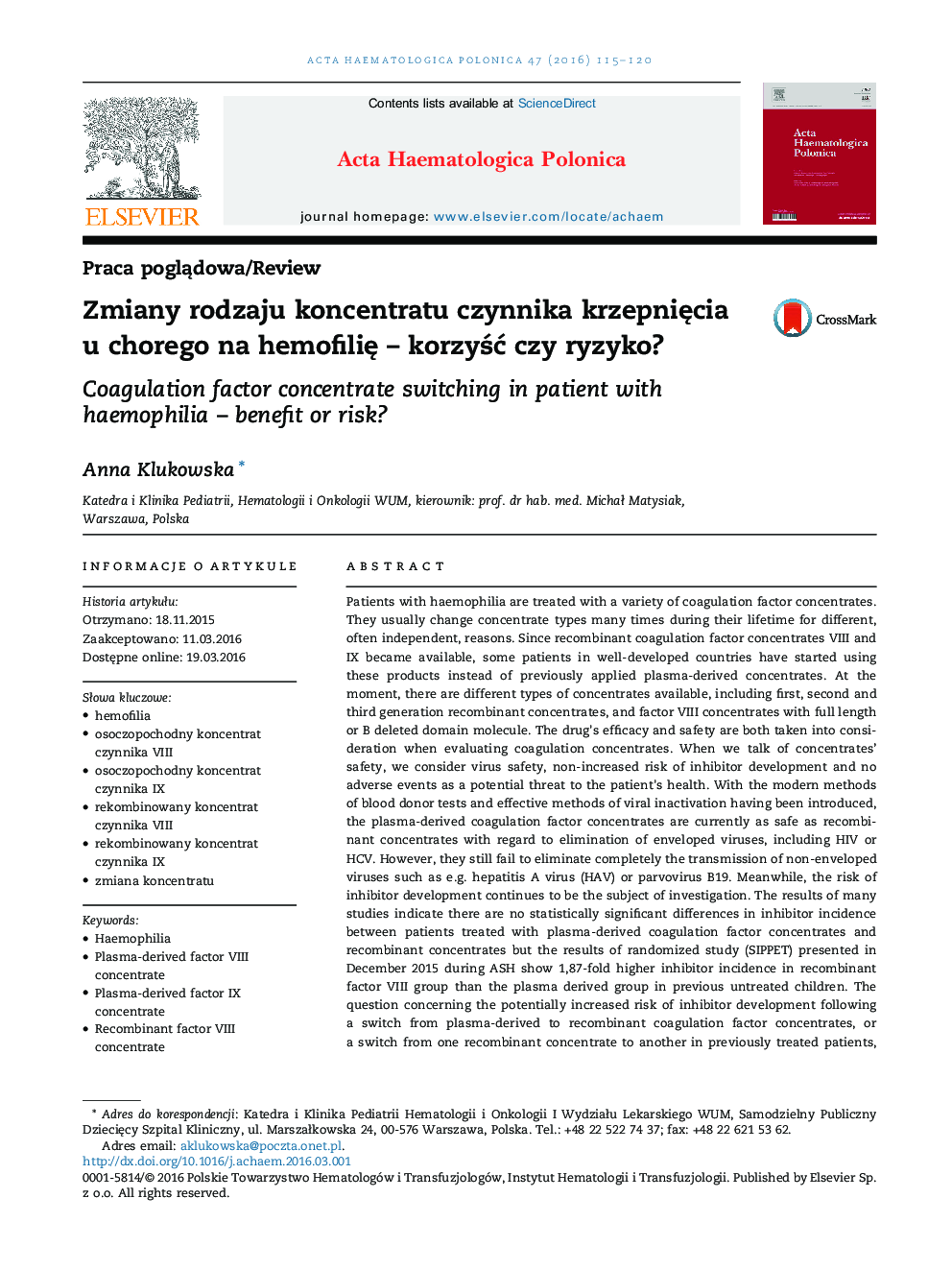| Article ID | Journal | Published Year | Pages | File Type |
|---|---|---|---|---|
| 3328065 | Acta Haematologica Polonica | 2016 | 6 Pages |
Patients with haemophilia are treated with a variety of coagulation factor concentrates. They usually change concentrate types many times during their lifetime for different, often independent, reasons. Since recombinant coagulation factor concentrates VIII and IX became available, some patients in well-developed countries have started using these products instead of previously applied plasma-derived concentrates. At the moment, there are different types of concentrates available, including first, second and third generation recombinant concentrates, and factor VIII concentrates with full length or B deleted domain molecule. The drug's efficacy and safety are both taken into consideration when evaluating coagulation concentrates. When we talk of concentrates’ safety, we consider virus safety, non-increased risk of inhibitor development and no adverse events as a potential threat to the patient's health. With the modern methods of blood donor tests and effective methods of viral inactivation having been introduced, the plasma-derived coagulation factor concentrates are currently as safe as recombinant concentrates with regard to elimination of enveloped viruses, including HIV or HCV. However, they still fail to eliminate completely the transmission of non-enveloped viruses such as e.g. hepatitis A virus (HAV) or parvovirus B19. Meanwhile, the risk of inhibitor development continues to be the subject of investigation. The results of many studies indicate there are no statistically significant differences in inhibitor incidence between patients treated with plasma-derived coagulation factor concentrates and recombinant concentrates but the results of randomized study (SIPPET) presented in December 2015 during ASH show 1,87-fold higher inhibitor incidence in recombinant factor VIII group than the plasma derived group in previous untreated children. The question concerning the potentially increased risk of inhibitor development following a switch from plasma-derived to recombinant coagulation factor concentrates, or a switch from one recombinant concentrate to another in previously treated patients, should thus be answered negatively. At the same time, further investigation is required in this field, particularly in small children.
